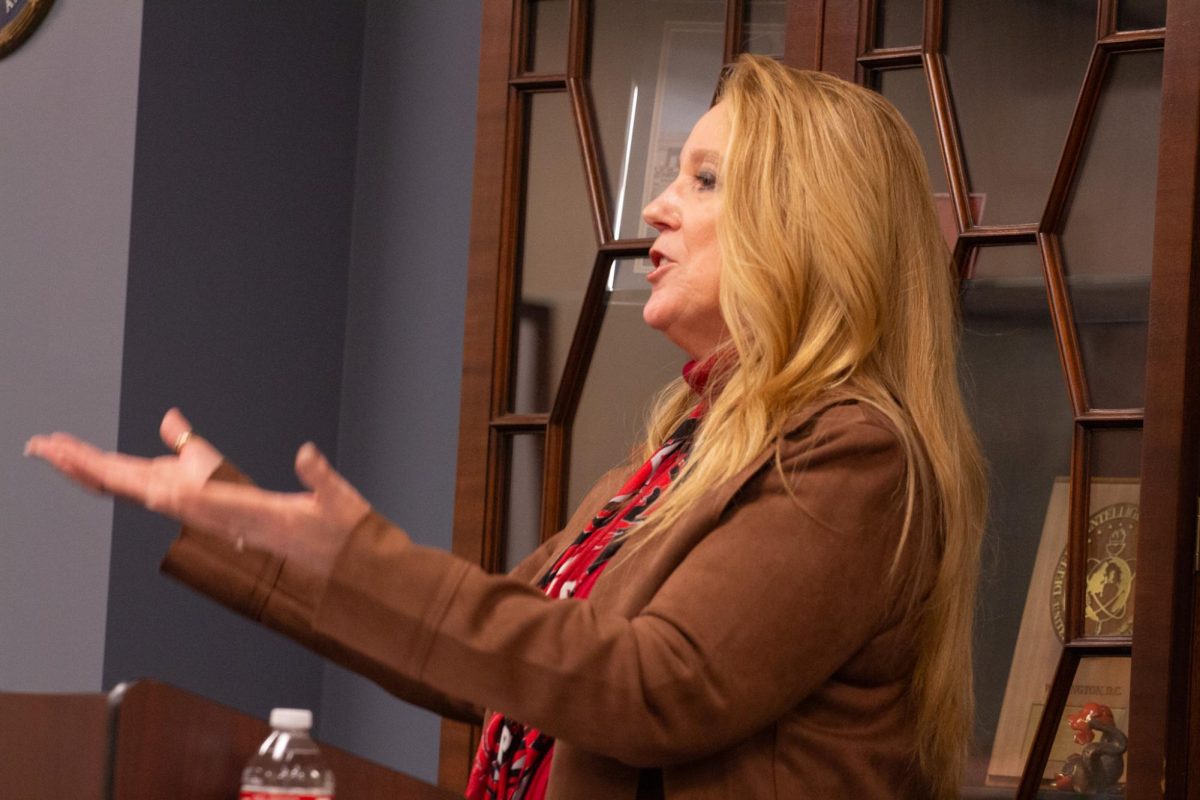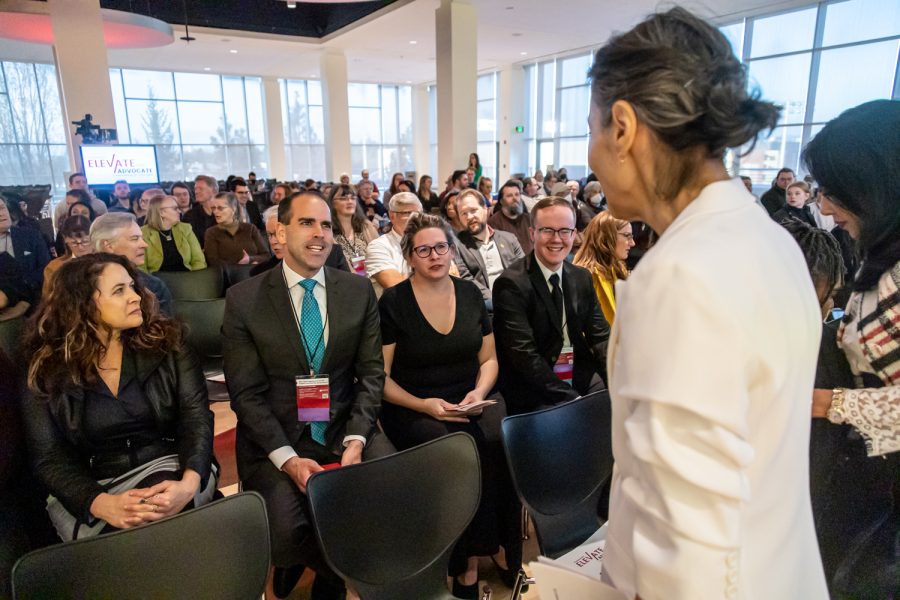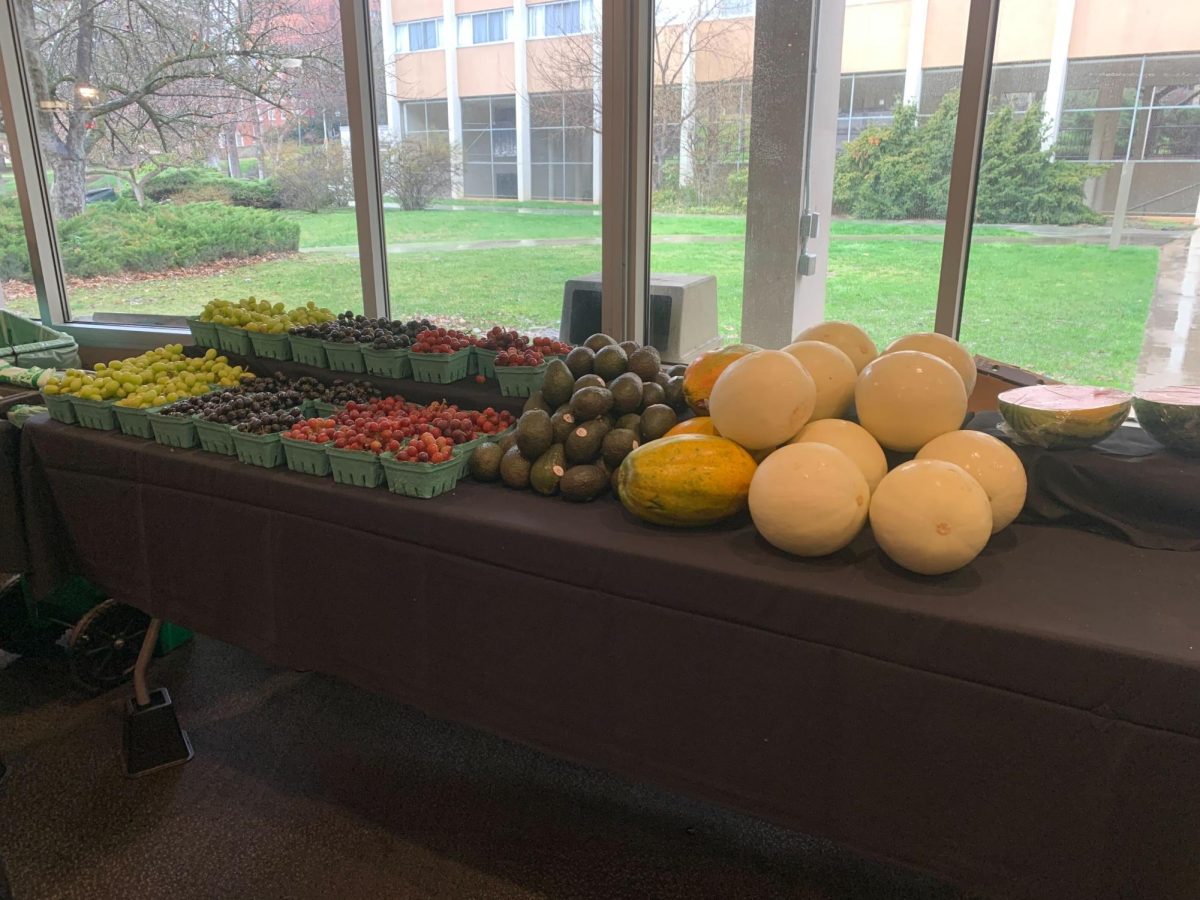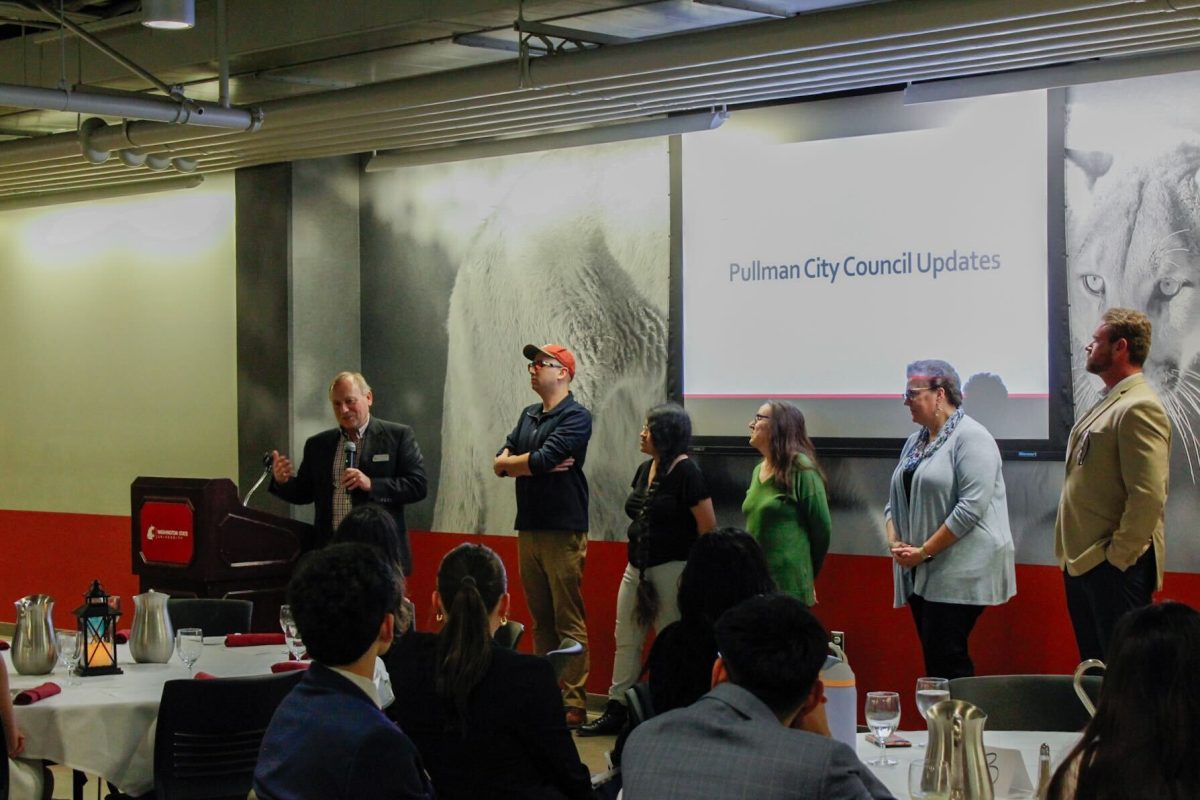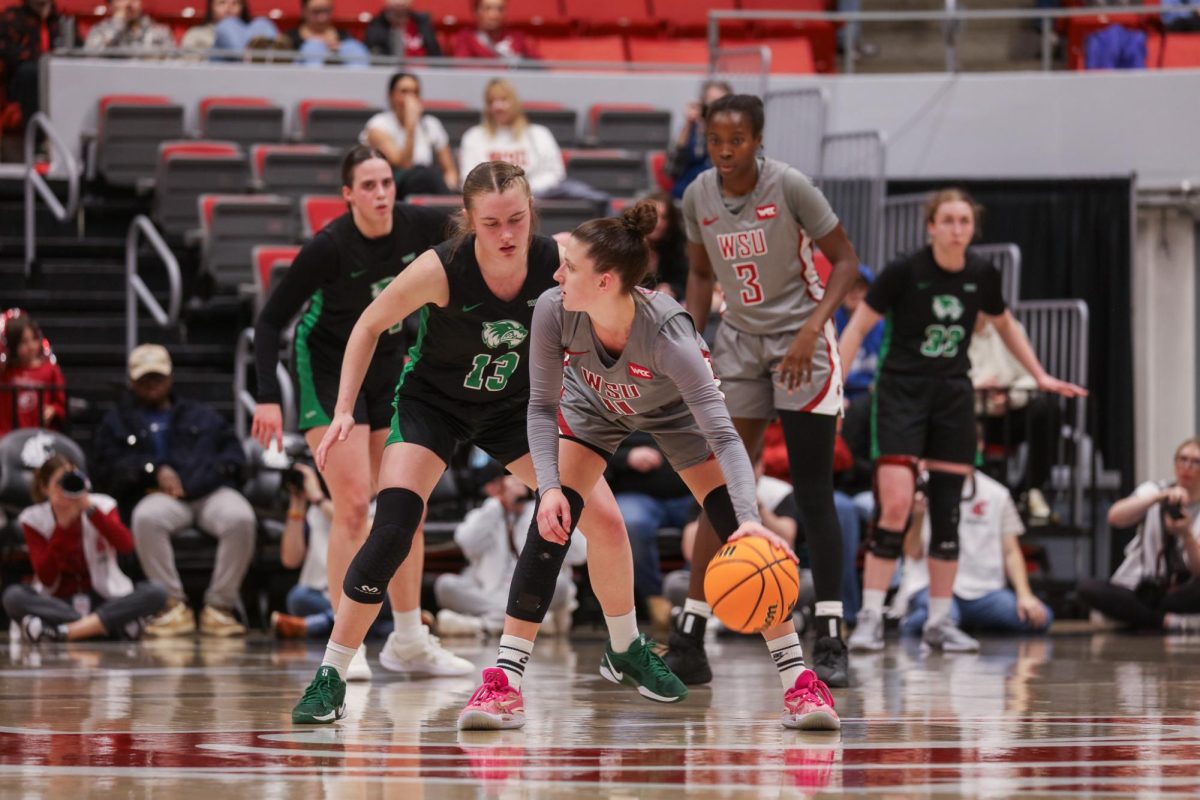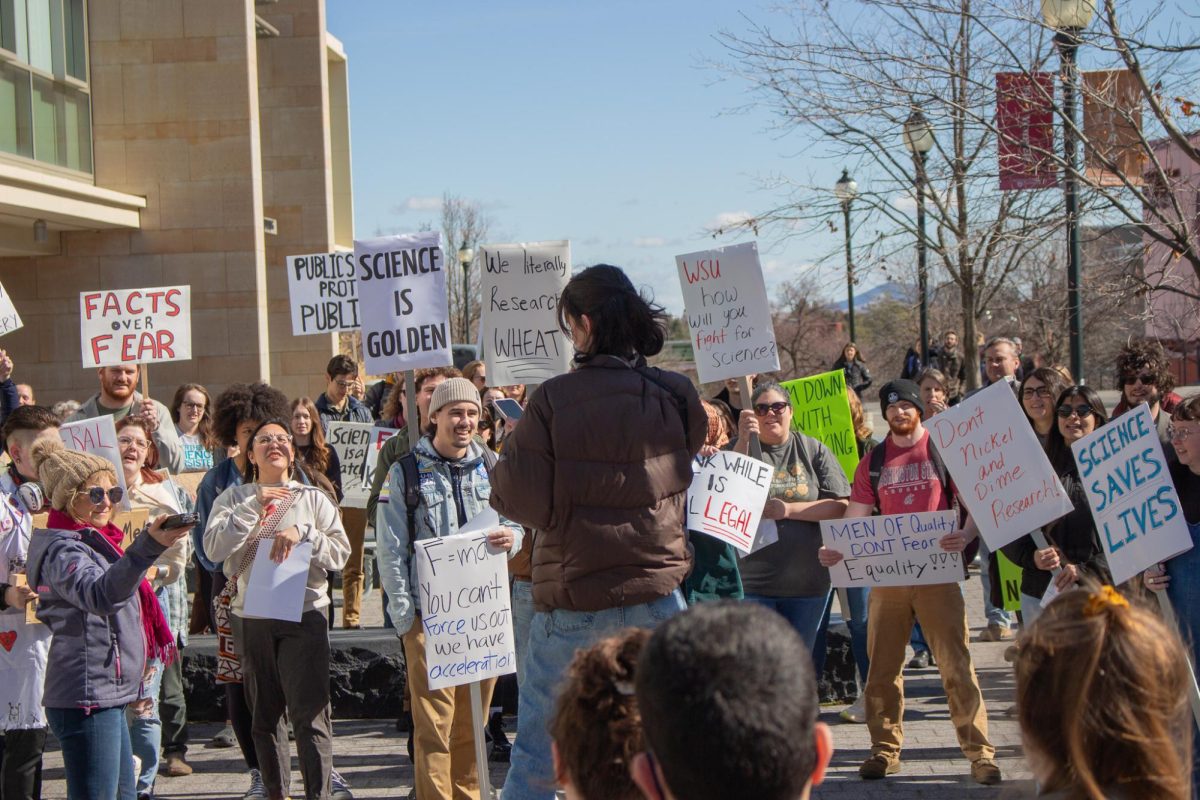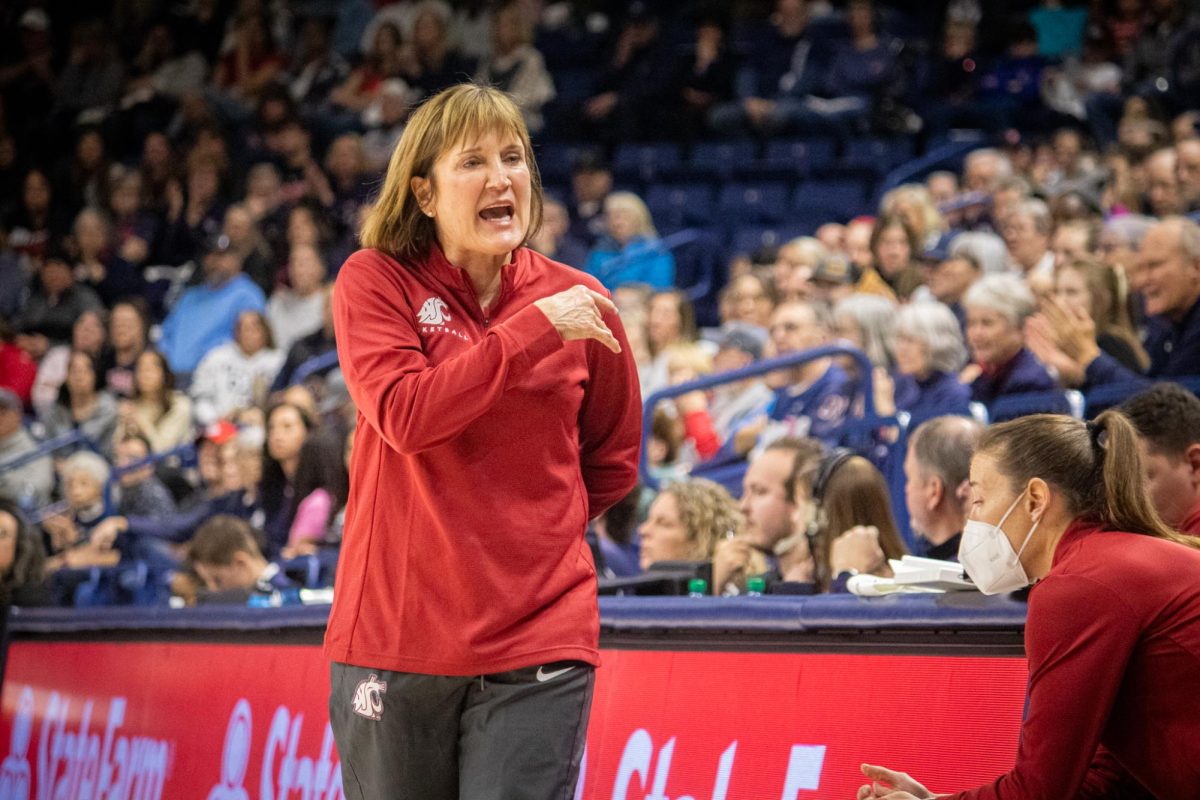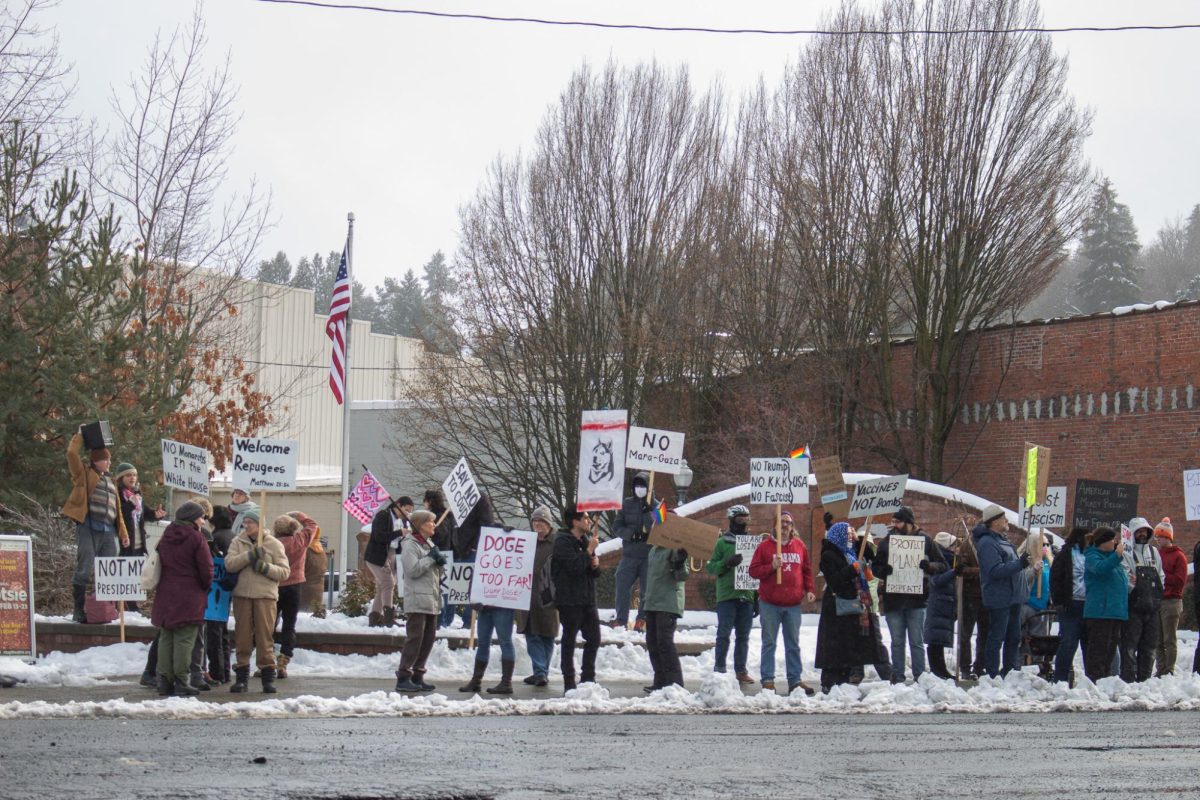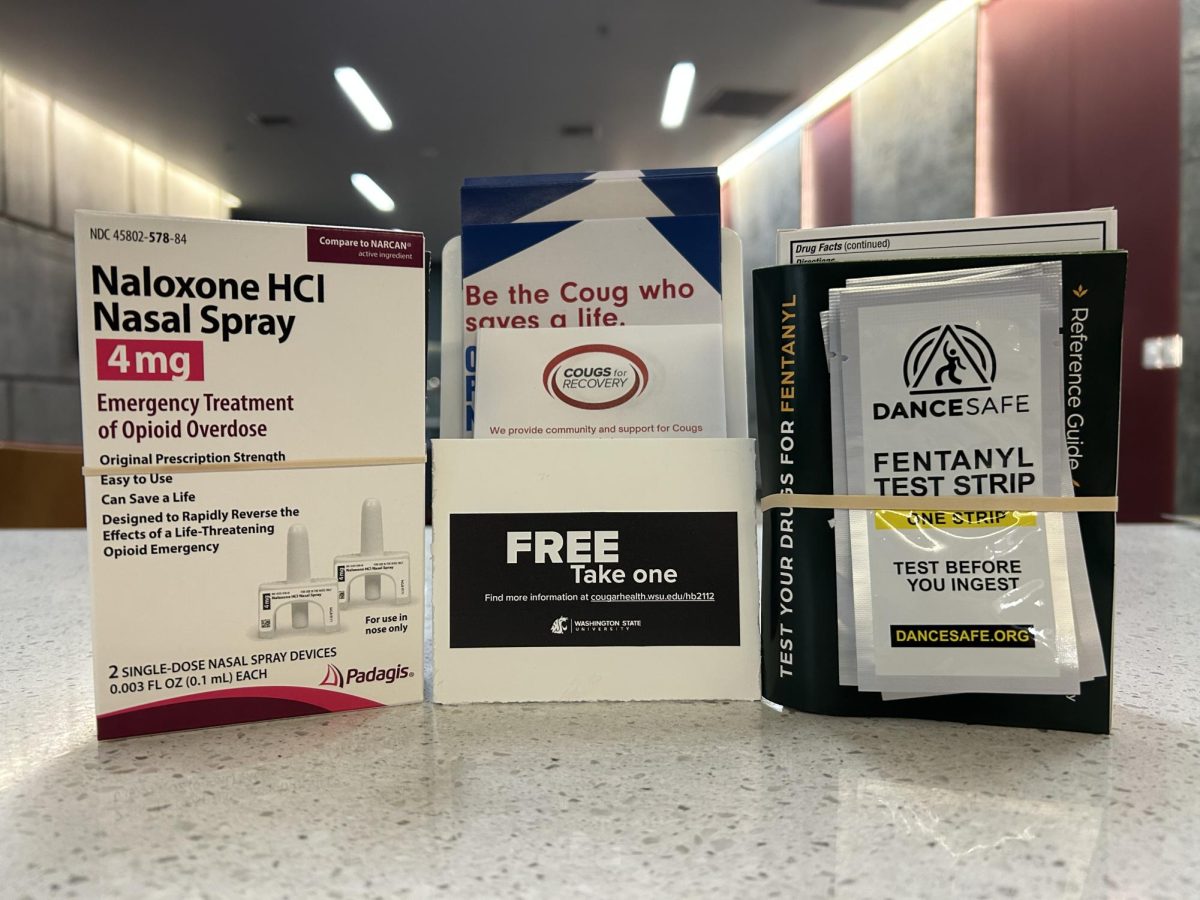Kim Wyman, Bipartisan Policy Center senior fellow, spoke at the first Foley Talk of the year Monday to discuss the 2024 election season.
Wyman said going into the election season this year, the United States is facing one of the most politically polarized times in the country’s history.
Over the past couple of years, not only has there been political division throughout the country, but it has crept into elections as well, dividing Americans along partisan lines, she said.
An AP Nordic Center for Public Affairs Research poll showed 22 percent of Republicans had high confidence that votes in the upcoming presidential election will be accurately counted, while 71 percent of Democrats felt the same way, Wyman said.
“You can kind of see out of the gate that it’s a big wide divide,” she said.
Wyman said a colleague at the Massachusetts Institute of Technology has been studying voters since 2018 and does an annual vote on the status of the opinions of voters.
In 2022, research results of a survey showed research patterns in voter confidence are a product of this polarization, she said. In 2020, voter confidence in Democrats rose from 69 to 93 percent since the 2016 election, while confidence among Republicans fell from 83 to 22 percent.
Democratic confidence remained the same in 2022, and Republican confidence jumped 20 points, she said.
“That’s really significant,” Wyman said. “But I don’t believe we’ll get their confidence back. They do not believe our elections are safe or secure or fair, but there is a movable group of Republicans that you can… get their confidence levels back.”
In addition to the nationwide loss of confidence in the presidential elections, there has been an increase in harassment and threats to poll workers, election workers and election officials, she said.
Wyman said this has been a challenging and frustrating situation, and as a result of the increase of harassment, there is a loss in election officials and it has been a real challenge getting people back into the profession.
“There have been attacks on voting systems and machines and manufacturers,” she said. “Don’t forget all of the threats we had going into 2020. We had foreign adversaries who wanted to hack our systems. They want propaganda to change our minds, to pit us against each other, to bring our country down from within.”
Wyman said these campaigns are designed to increase doubt and create discord among people in the country, including the Trump campaign and the media highlighting the New Hampshire primary election Monday, and discussing the event as if it will decide the fate of the Republican Party nominee.
“It’s wrong…this is just the early part of this process, and it’s building to the Republican National Convention where they are going to actually formally select their nominee,” she said. “But if you listen to the news and you’re not an informed voter, you would think the Republican Party is deciding their nominee tonight, and that’s part of the problem.”
Wyman said in 2020, she worked with another politician to show Americans coming out of 2020 that cybersecurity and election security is more important than partisan politics, and used her expertise to help election officials across the country secure their systems.
She said she is optimistic for the 2024 elections because she wants to use her expertise the same way, and is hoping to rebuild voter confidence throughout the country alongside other areas.
There are four policies the country and individual states could start with to make a difference in elections, which are all supported by both Democrats and Republicans, she said.
The first policy includes early voting so people who have busy lives and schedules can vote when it is convenient for them, she said.
Another policy relates to voter ID. Wyman said voter IDs need to be accessible, financially and in other areas, so they can be accessible to everybody.
The third policy includes automatically registering people who have already proven citizenship, she said. When someone goes to get a real ID or license, it is already known if they are old enough to vote, they live within a certain district, they meet residency requirements and are a U.S. citizen.
Wyman said because people are already verifying all four requirements of who should vote, they should automatically be registered to vote when they go to get an ID and give them the option to opt-out.
The final policy includes sending an absentee ballot to all eligible voters before the election, she said.
“Those are just four areas that I think could be low-hanging fruit we could start with,” Wyman said. “But we’ve got to start having those conversations because…polarization has been a long time coming.”


